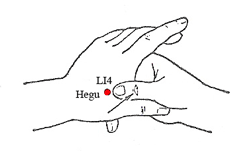 Pregnancy can be an absolutely wonderful time, but it can also be an anxious, especially in few months at the beginning, when you are at the risk of miscarriage. A threatened miscarriage might happen during this period, and many women are absolutely terrified by the prospect. How can you tell if you are experiencing a threatened miscarriage? And what to do for it? Read on to get the answers.
Pregnancy can be an absolutely wonderful time, but it can also be an anxious, especially in few months at the beginning, when you are at the risk of miscarriage. A threatened miscarriage might happen during this period, and many women are absolutely terrified by the prospect. How can you tell if you are experiencing a threatened miscarriage? And what to do for it? Read on to get the answers.
What Is a Threatened Miscarriage?
Up until the 20th week of pregnancy, many women experience signs of a miscarriage – in fact, 20 to 30 percent of women experience the bleeding or spotting. Fortunately, for most women, these signs don't mean that a miscarriage happens. This is known as a threatened miscarriage. But it can mean that you need to take certain precautions during your pregnancy to ensure that you can keep your baby healthy. The following are the most common signs of a threatened miscarriage:
- Bloodstains or brown discharge on your underwear
- Spotting or vaginal bleeding
- Abdominal pains, or cramps in your back or lower abdomen
Remember that the act of growing a baby inside you can lead to aches and pains, and these don't necessarily mean anything is wrong. Often the cramping, accompanied by bleeding or discharge, can be the most reliable sign of an impending miscarriage.
What Causes a Threatened Miscarriage?
In the vast majority of cases, a miscarriage happens for what seems to be no reason at all. It can be frustrating and saddening to be unable to pinpoint a reason, but this is the reality for the majority of women who lose a pregnancy. On the other hand, some women do have medical conditions that can put them at the risk of vaginal bleeding. These might include:
- An infection, such as a sexually transmitted disease, or in the uterus or surrounding areas
- An ectopic pregnancy (when the pregnancy implants in a fallopian tube rather than the uterus)
- Cervical inflammation
- A problem with the placenta
- A problem with the uterus, including fibroids, endometriosis, polyps, cysts and the like
There are other reasons why you might begin spotting or bleeding during pregnancy. These might include:
- The aftermath of sex with your partner
- A problem with your fetus, such as a congenital abnormality
- The cervix is opening too soon (also known as incompetent cervix)
- How or where the placenta has attached to your uterine wall (those that attach lower might be at greater risk for bleeding)
Do You Need to Go to Hospital?
When you begin bleeding during the first trimester of pregnancy, your doctor might take a "wait and see" approach. This means that you will rest and relax as best you can, and hope that the bleeding stops. It often does, especially if it stems from something like sex with your partner. However, if the bleeding gets worse or if you have severe pain in your abdomen, get to the doctor immediately.
Will a Threatened Miscarriage End in Miscarriage?
Though it is impossible to predict whether a threatened miscarriage will turn into an actual miscarriage, the odds are on your side: 70% of all threatened miscarriages turn out to be nothing but a scare. Bleeding during early pregnancy can be quite normal, even though it is frightening.
The best way to know if a threatened miscarriage will turn into something more is to watch the symptoms. If you begin to experience heavier bleeding, passing blood clots, feeling weak or dizzy, or develop fever and chills, you likely have a more serious problem that might result in losing the pregnancy.
What to Do If You Have a Threatened Miscarriage
There is no way to prevent a miscarriage at an early date – if it is going to happen, it will happen no matter what you do. But there are a few things you can do to help alleviate the symptoms and possibly keep them from becoming worse. Pelvic rest, including no sex and avoiding tampons, can help. You might also be encouraged to reduce your activity, such as not standing as much or avoiding vigorous exercise. Finally, your doctor might prescribe progesterone supplements to help relax the uterus.
The best way to help reduce your risk of miscarriage is to keep every regular prenatal appointment. Some problems, such as your cervix opening too soon, might be caught at these appointments, which could help you avoid a miscarriage in the long run.
Tips and Advice
Remember a threatened miscarriage doesn't mean the miscarriage will happen. The result usually comes to be positive. And if it does happen, be aware that you are not to blame and never overthink the situation. It is something that happens to millions of women all across the world, and doctors have never found a good reason for it. Finally, always be kind to yourself and take the time to grieve your loss before trying again.






